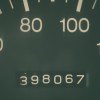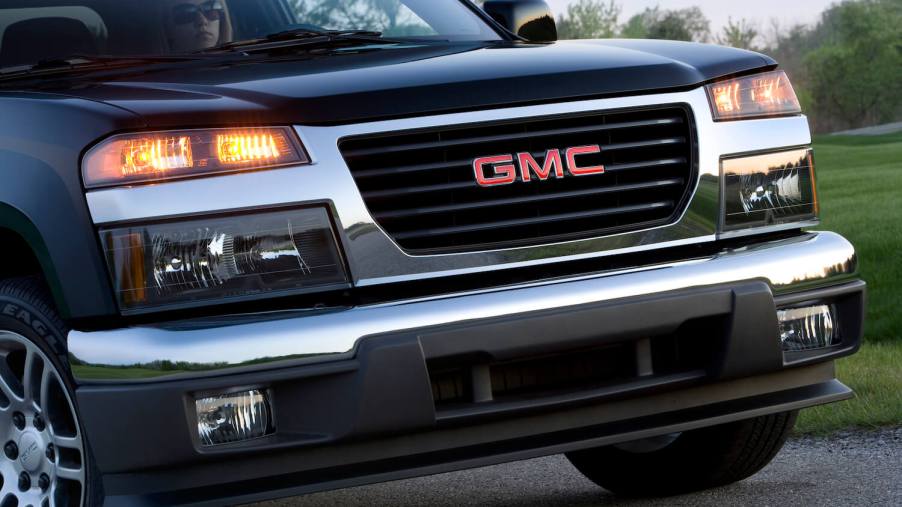
These Common GMC Canyon Problems Will Light Up Your Dashboard Like a Christmas Tree
General Motors debuted the GMC Canyon for the 2004 model year–to replace its S15/Sonoma compact pickup truck. The 2004-12 GMC Canyon and its Chevrolet Colorado twin have proven themselves versatile and efficient pickups. But when the mechanics at 1A Auto reviewed its top problems, they revealed that several common GMC Canyon problems can actually cause a check engine light.
- Crankcase ventilation hose
- Dirty throttle body causing a low idle speed
- Clogged EVAP Vent valve
Check engine light code P0300 and P0171 may be caused by a leaking PCV hose
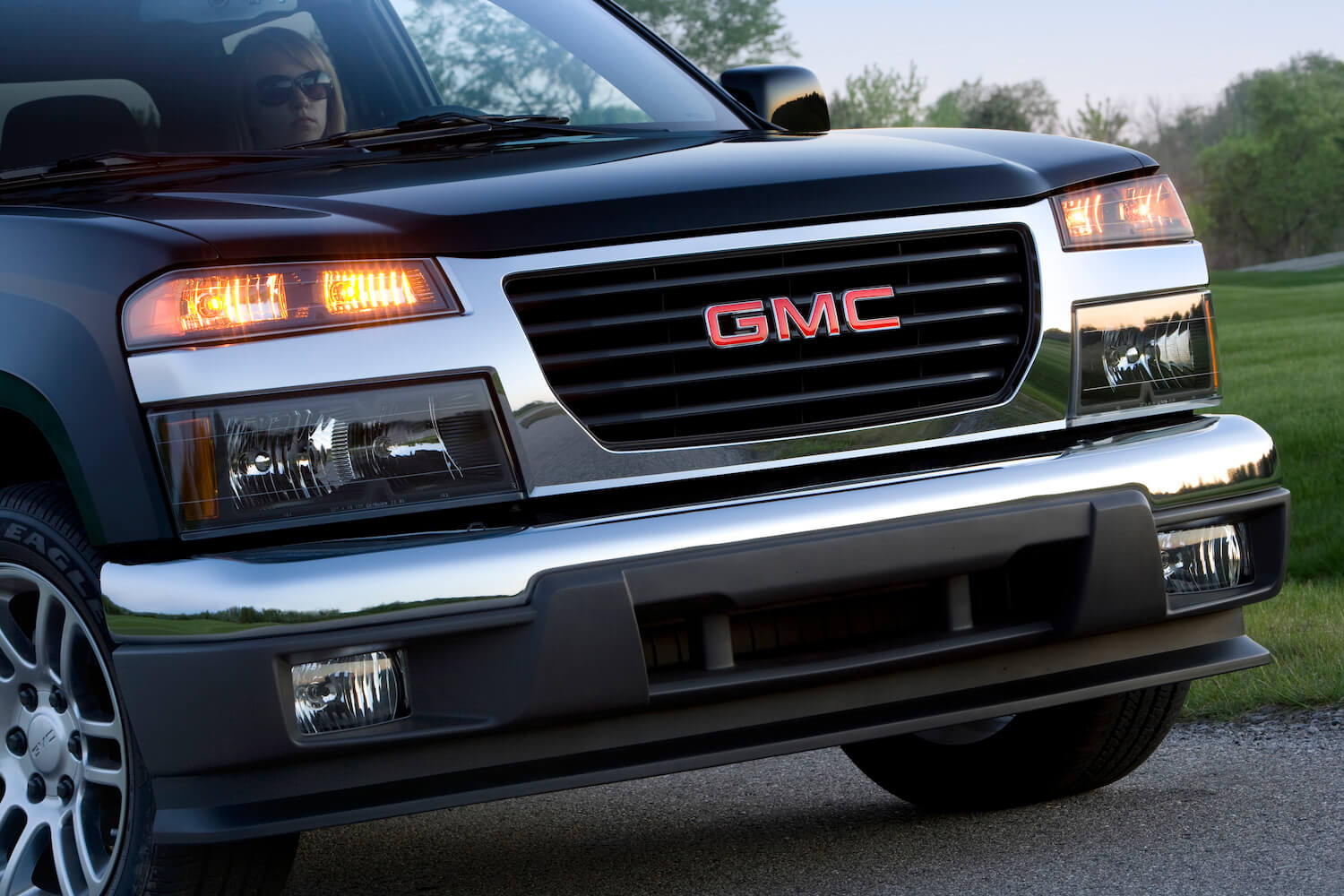
Here’s some good news: The absolute top GMC Canyon check engine light cause is also the easiest to repair. If you have your check engine light tested and find its throwing coeds P0300 and P0171, the rubber hose connecting your PCV valve to the intake manifold may be leaking–according to 1A Auto.
Like any modern vehicle, the GMC Canyon has a “Positive Crankcase Valve,” which releases any excess unburnt air/gas from the top of the engine and feeds it back into the intake manifold. When the hose connecting the rubber hose connecting the crankcase valve and intake manifold begins to leak it causes what’s called a vacuum leak, and your engine will run poorly. The code you’ll see is officially a “fuel trim” issue, but luckily replacing the hose is not difficult.
The PCV hose runs from the back side of the GMC Canyon’s engine around to the manifold. You may need to remove the plenum on top of the engine, Or if you are careful, you may be able to replace it with the plenum still installed.
Check engine light code P0506 is caused by a dirty throttle body
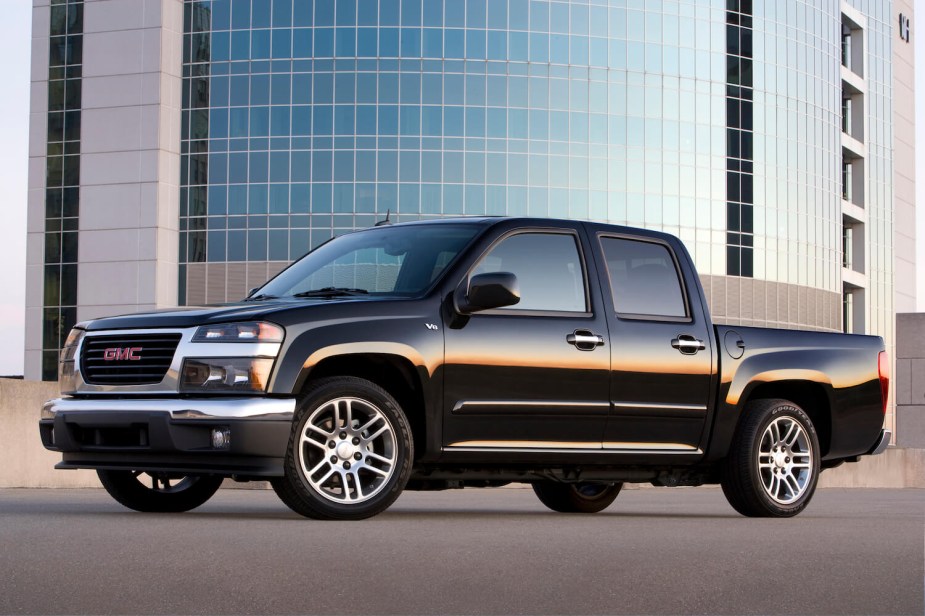
Is your GMC Canyon struggling to get moving from a standstill? When you listen to your engine, does it sound like it’s idling too slowly? Is it throwing a check engine light with the P0506 code? It may have a dirty throttle body.
The throttle body is on top of the engine. It’s attached to your air intake snorkel, and based on your accelerator pedal position, it controls how much air/gas mixture passes into your engine. If debris and dust manage to get past your air filter and get stuck on your throttle body’s butterfly valve, it may cause such a low idle speed that you see a check engine light.
You can clean your throttle body yourself using a specialized cleaning spray. But this spray can damage engine components, so you’ll definitely want to remove the throttle body to clean it.
Check engine light P0450 means a leaking EVAP system, usually due to a stuck valve
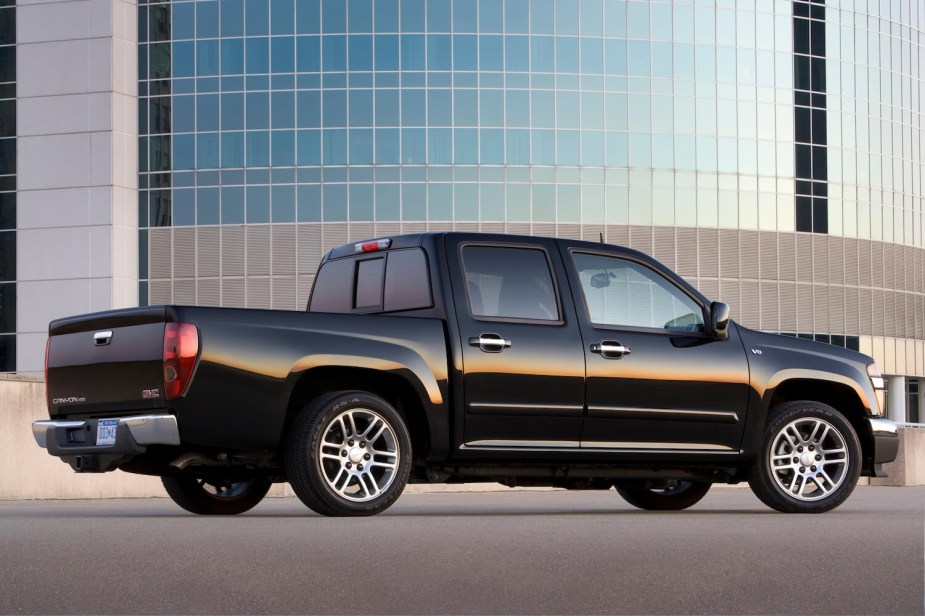
The final common GMC Canyon check engine code is P0450. This means the fuel system’s vapor recovery (EVAP) system is leaking. This system traps any vapors escaping from the gasoline in your tank and circulates them into the engine so they don’t leak into the atmosphere. It can leak in one of several ways.
The easiest EVAP leak to fix is a loose gas cap. Yup, if you leave your fuel filler cap ajar, you may see an EVAP check engine light. You’ll definitely want to tighten that cap, then restart your truck and check for the engine light. If the cap doesn’t seal at all, you may even want to replace it.
Another very common issue on the GMC Canyon is a a stuck EVAP vent. The vent is located next to a component called the “EVAP canister,” just above the spare tire. If road debris bounces into the vent while it’s open, it gets stuck open. Unfortunately, this usually destroys the vent, so you’ll have to replace it.
Next, find out whether midsize pickups are actually cheaper than full-size trucks or watch 1A Auto’s guide to common GMC Canyon problems in the video below:
